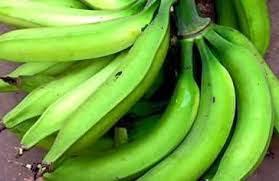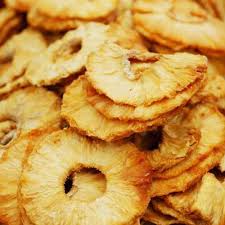Garlic Powder Production and Sales (Local and Export) in Nigeria; The Feasibility Report.

Garlic (Allium sativum) is a spice crop belonging to the family Alliaceae along with onion (A. cepa. L), leek (A. ameloprisum L.), chives (A. schoenoprasum L), and shallot (A. asaclincum). It is the second most widely used amongst cultivated Alliums after onions (Allium cepa). The crop consists of an underground bulb and vegetative shoot which consist of leaves and flower. They are 40 cm tall when fully grown.
The leaves of garlic are flat and very slender, in contrast to other alliums whose leaves are cylindrical and hollow. The garlic plant, both the green tops and the bulbs are used as spice, flavoring and seasoning vegetables and meat dishes. Its pungent smell could be very unpleasant when perceived fresh but when added to meals gives the meal a delightful fragrance. Today garlic is a widely recognized health enhancing supplement.
Fresh garlic is cultivated in large quantities by many farmers in Nigeria especially in the Northern stated like Kano, Kaduna, Kebbi, Sokoto, Jigawa, Bauchi, Katsina and Zamfara States.
Garlic has digestive, carminative and anti-rheumatic properties. It is used in aurvedic formulation since ancient times for curing muscular pain, giddiness, lungs, heating intestinal ulcer, etc.
Garlic is consumed as green as well as dried in the spice form and as ingredient to flavour the various vegetarian, non-vegetarian dishes and pickles. Good tasty pickles, chutneys, curry powders are prepared from Garlic cloves. Garlic is also used to disguise the smell and flavour of salted meat and fish. Dehydrated Garlic in powdered or granulated form is being used in place of fresh bulbs in many countries.
The main advantages of preparation of value added products from Garlic are to increase the storage life and also to reduce the transportation cost and earn more foreign exchange. Garlic is being exported either in the form of dehydrated flakes or dehydrated powder. Now-a-days the dehydrated Garlic is gaining considerable importance in the world. Also, the dehydrated products are more uniform in flavour than the stored bulbs.
Garlic powder is ground, dehydrated garlic. It is a very common seasoning. Applications include pasta, pizza, and grilled chicken. Garlic salt is simply salt plus garlic powder. (Pre-made products usually include an anti-caking agent.) Garlic powder is a common component of spice mix. It is also a common component of seasoned salt.
The market for the product is very widely spread and bulk of the household’s restaurants, eateries, caterers, and clubs use it regularly. The demand for the processed products is increasing day by day due to its convenience to handle and use. There are good export prospects as well.
This report is to examine the financial viability or otherwise of establishing a garlic powder production and packaging plant in Nigeria.
The production capacity of the proposed business is twelve (12) tons for garlic powder per day of three (3) shifts of eight (8) hours each working at eighty percent (
80%) of the installed capacity in the first, second, third, fourth and fifth year of operations respectively.
Table of Contents
EXECUTIVE SUMMARY 1.0 Business Overview 1.1 Description of the Business 1.2 Vision and Mission Statement 1.3 Business Objective 1.4 Value Proposition 1.5 Critical Success Factor of the Business 1.6 Current Status of Business 1.7 Description of the Business Industry 1.8 Contribution to Local and National Economy 2. Marketing Plan 2.1 Description of product 2.2 Product Packaging and delivery 2.3 The Opportunity 2.4 Pricing Strategy 2.5 Target Market 2.6 Distribution and Delivery Strategy 2.7 Promotional Strategy 2.8 Competition 3. Production Plan 3.1 Description of the Location 3.2 Raw Materials 3.3 Production Equipment 3.4 Production Process 3.5 Production Cost 3.6 Stock Control Process 3.7 Pre-Operating activities and expenses 3.7.1 Operating Activities and Expenses 3.8 Project Implementation Schedule 4.0 Organizational and Management Plan 4.1 Ownership of the business 4.2 Profile of the promoters 4.3 Key Management Staff 4.3.2 Management Support Units 4.4 Details of salary schedule 5. Financial Plan 5.1 Financial Assumption 5.2 Start- up Capital Estimation 5.3 Source of Capital 5.4 Security of Loan 5.5 Loan Repayment Plan 5.6 Profit and Loss Account 5.7 Cash Flow Analysis 5.8 Viability Analysis 6.0 Business Risks and SWOT Analysis 6.1 Business Risks 6.2 SWOT Analysis
Project Specification:
Additional Info
Get this Report
Direct bank transfer
To order the report, Please do pay the sum of ₦100,000 into
Account Name : Foraminifera Market Research Ltd
Account Number : 274 20 569 37
Account Name : Foraminifera Market Research Ltd
Account Number : 101 76 603 95
Account Name : Foraminifera Ventures
Account Number : 011 66 066 32
Make your payment directly into our bank account. Please use your Order ID as the payment reference. Your order will not be shipped until the funds have cleared in our account.
Instructions
After payment call us on 01 -29 52 413 / 08033782777 or email us at foraminiferamarketresearch@yahoo.com with the payment details. After payment confirmation, the soft copy of the report would be sent to you within 24 hours.



